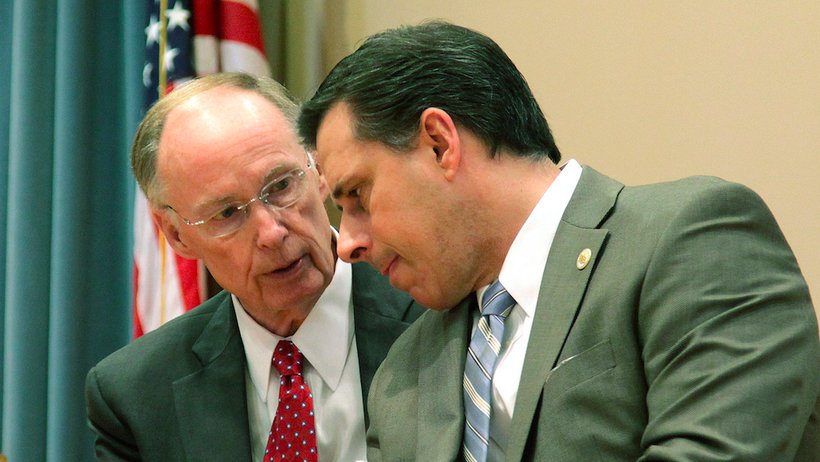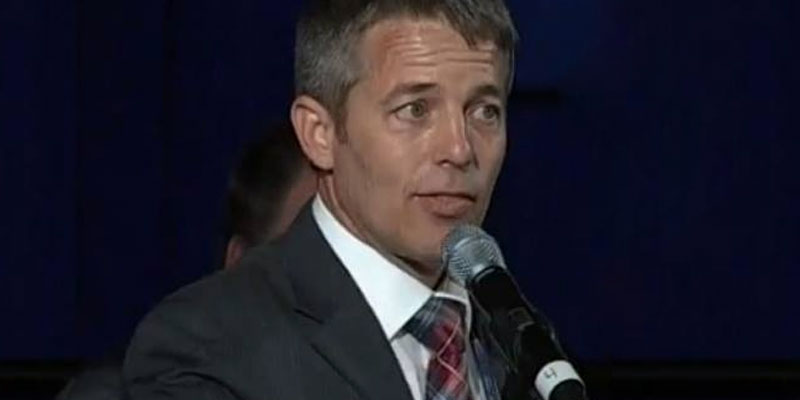
MONTGOMERY, Ala. — Democratic presidential candidate and former Secretary of State Hillary Clinton slammed the Alabama Law Enforcement Agency’s (ALEA) decision to handle budget cuts by closing 31 part-time satellite Driver License offices as “a blast from the Jim Crow past.”
The move by ALEA has invited national criticism, with Democrats and the media, in particular, calling it a large step backward in a state with a troublesome racial history such as Alabama’s.
The controversy is aggravated by Alabama’s Voter ID law, first implemented in 2014, which requires voters present one of fifteen forms of valid identification.
Though Alabama Secretary of State John Merrill assured voters his office would work relentlessly to provide free non-driver voter IDs across the state, with a special focus on those counties now without a satellite license office, Clinton and many others have seized the situation to make a political statement.
“I strongly oppose Alabama’s decision to close driver’s license offices across the state, especially in counties that have a significant majority of African-Americans,” said Clinton. “Just a few years ago, Alabama passed a law requiring citizens to have a photo ID to vote. Now they’re shutting down places where people get those photo IDs. This is only going to make it harder for people to vote. It’s a blast from the Jim Crow past.”
Alabama Congresswoman Terri Sewell (D-AL7), the only Democratic member of the state’s congressional delegation, who has endorsed Clinton, also blasted the move, calling on the U.S. Department of Justice to investigate the decision.
“My office sent a letter to Attorney General Loretta Lynch calling for a full, and thorough investigation into the decision to close 31 driver’s license offices across Alabama,” said Sewell in a statement released Monday morning. “This ill-conceived decision left 8 out of the 14 counties in my district – which is the only majority minority district in the state – without a Department of Motor Vehicles (DMV) to issue an Alabama driver’s license.
“The real issue here is about access. Closing these license offices will severely limit access to the most popular form of photo identification used in voting – a state issued driver’s license.”
ALEA Director Spencer Collier rejects the idea that the decision had any political or racial undertones, stating that it was simply the solution to the budget that impacted the fewest number of people.
The State Legislature’s black caucus has been “the strongest supporters of ALEA and what we’re trying to do,” said Collier. “I can assure you there’s nothing political in this. If that was the case, those are the places I would want to keep open.”
“In July, I announced several advancements that will help the Driver License issuance process, including online scheduling, online driver license renewals and duplicates, self-serve kiosks, digital licensing for smart phones, and statewide equipment upgrades. Since making that announcement, we have had over 40,000 transactions online,” Collier said in a statement last week. “The impact of the changes due to the budget cuts will be lessened because of the implementation of these technology-based services, including online renewals.”
The 31 offices closed, Collier added, processed only 5 percent of Alabama’s 1.2 million drivers licenses every year.
Regardless of the implications of Clinton’s weighing in on the subject and Sewell’s plea to Attorney General Loretta Lynch, there is some question whether the complete closure of the offices is legal, given the language of the budget law Governor Bentley signed in September, which explicitly prohibits the Alabama Law Enforcement Association from closing any drivers license offices that were open as of October 1st, 2014, and that any reductions in force focus on areas that don’t directly serve the public.
The Alabama Supreme Court declined Governor Bentley’s request for the judicial branch to weigh in on whether or not the law’s directive usurped the executive branch’s authority.
In addition to Drivers Licenses the following, unexpired, unrevoked forms of identification are acceptable as well:
Nondriver ID, Alabama Photo Voter ID card, State Issued ID, Federal Issued ID, US Passport, Employee ID from the Federal Government, State of Alabama, County, Municipality, Board or other entity of Alabama, Student or employee ID from a public of private college or university in the State of Alabama, Military ID, or a Tribal ID.
Like this article? Hate it? Follow me and let me know how you feel on Twitter!
— Elizabeth BeShears (@LizEBeesh) January 21, 2015











